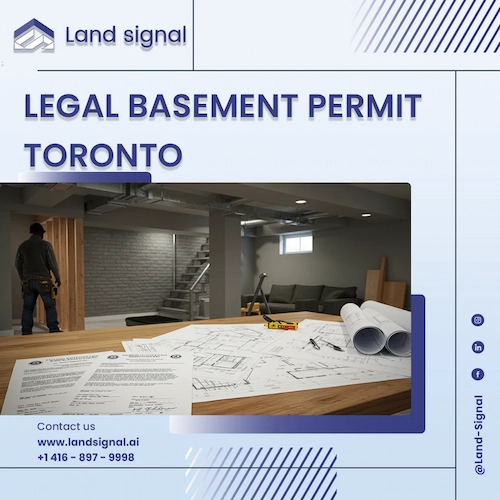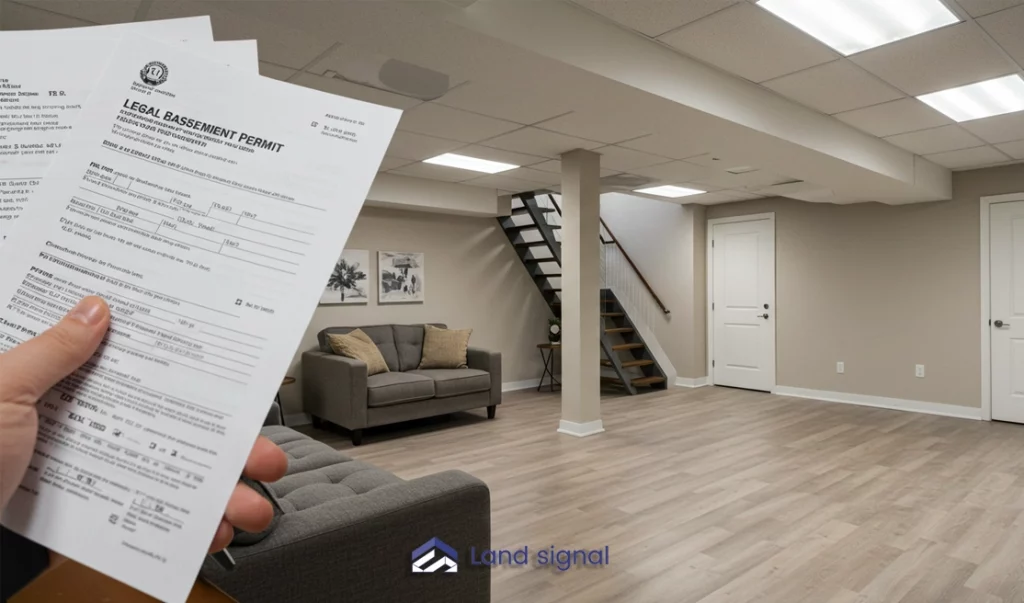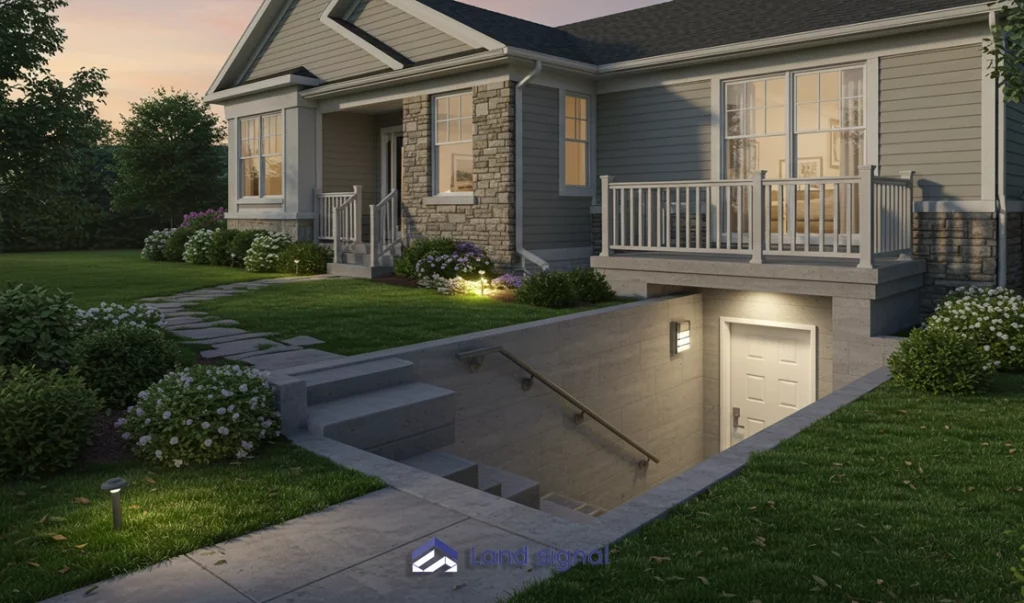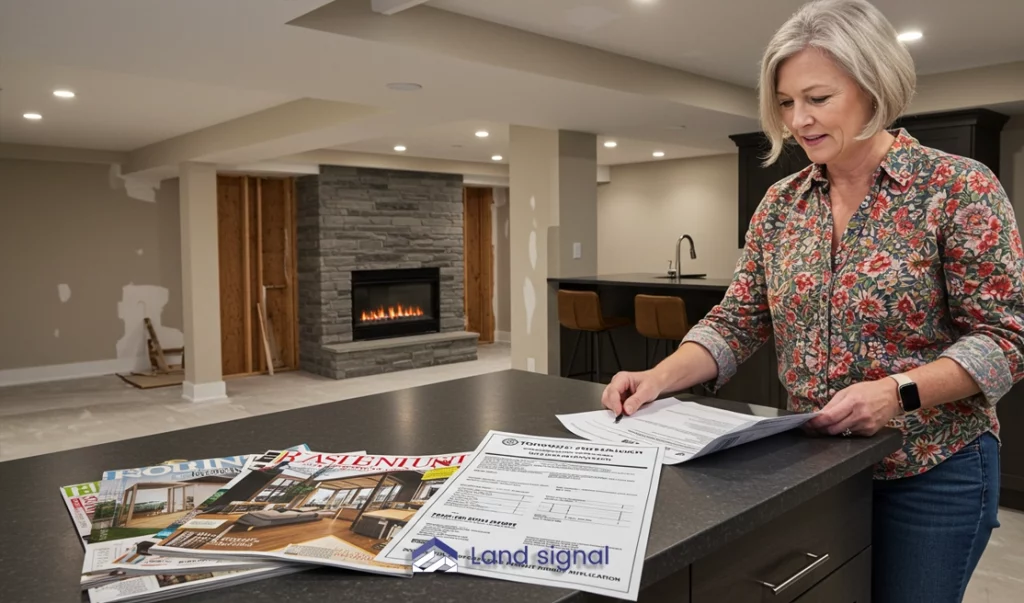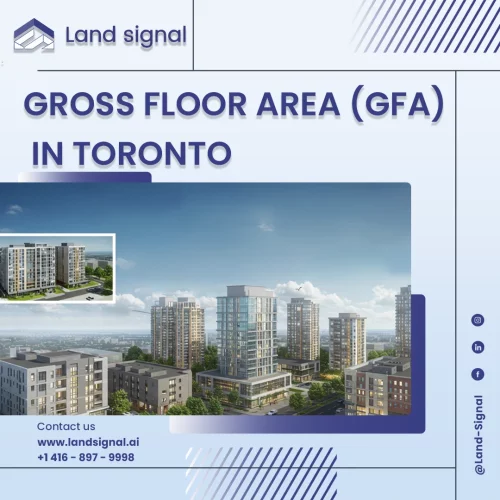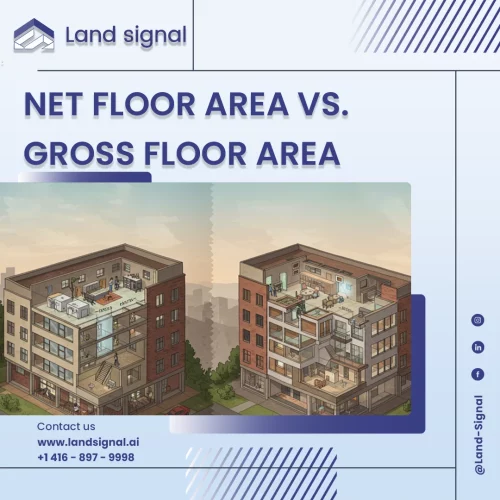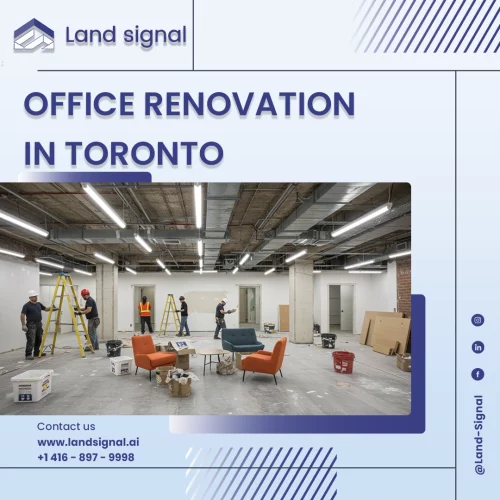Toronto’s housing market is constantly evolving, and legal basement apartments have become a significant part of the city’s housing landscape. These secondary suites offer a range of benefits for both homeowners and tenants, providing additional income potential for homeowners and more affordable housing options for renters. However, converting a basement into a legal apartment requires careful planning, adherence to specific regulations, and obtaining the necessary permits from the City.
Navigating the legal requirements for a basement apartment can be challenging. Land Signal can connect you to specialist helping homeowners obtain the necessary permits and approvals to legally convert their basement into a rental suite. With expert knowledge of Toronto’s building regulations and zoning bylaws, Land Signal can guide you through every stage of the process, from ensuring compliance with safety standards to submitting all the necessary documentation for approval. Their professional guidance simplifies the complexities of obtaining a legal basement suite permit, ensuring a smooth and hassle-free experience.
This comprehensive guide will explain the process of obtaining a legal basement permit Toronto, from understanding the requirements to navigating the application process. It’s important to prioritize safety and compliance throughout the process to ensure the well-being of occupants and avoid potential legal issues.
What is a Legal Basement Apartment?
A legal basement apartment in Toronto is a self-contained dwelling unit located within the basement of a single-family home, duplex, or triplex. It must meet specific requirements outlined in the Ontario Building Code and the City of Toronto bylaws to be considered legal. These requirements encompass various aspects, including fire safety, egress, minimum ceiling height, proper ventilation, and sanitation.
In an Existing house A key feature is a 15-minute fire separation between the basement unit and the main dwelling, ensuring that a fire in one unit won’t immediately spread to the other. A regular drywall ceiling can provide some fire resistance. It’s also mandatory to have an egress window that’s large enough for people to escape in case of a fire. If you’re applying for one basement apartment, a 15-minute fire separation is sufficient. However, if you’re converting your house into more than two units (e.g., two basement apartments and a main floor unit), you’ll need a 30-minute fire separation. To achieve this, you’ll need fire-rated drywall on the ceiling and ROXUL insulation inside the ceiling.
Interconnected smoke alarms throughout the entire house are essential, ensuring that all alarms activate simultaneously in the event of a fire. A fire-rated door with a self-closing device is required between the main unit and the basement, as well as for the mechanical room, further enhancing fire safety.
What is a Legal Basement Permit Toronto?
A legal basement permit Toronto is a legal authorization issued by the City, allowing homeowners to convert their basement into a legal secondary suite. Obtaining this permit is mandatory before undertaking any construction or renovation work for a basement apartment. The permit process involves submitting detailed architectural drawings, including floor plans, electrical layouts, and plumbing diagrams, demonstrating compliance with building codes and regulations.
These blueprints must clearly illustrate the proposed layout, including room dimensions, window sizes, and the location of essential features like smoke detectors and fire separations. The application also requires documentation demonstrating compliance with electrical and plumbing codes, ensuring the safety and functionality of the new unit.
Why Should I Add a Separate Basement Apartment to My Home?
Adding a legal basement apartment to your home can offer several advantages, both financially and in terms of living arrangements. It can provide a steady stream of rental income, helping to offset mortgage payments or other expenses. The added living space can also increase your property’s value, making it a worthwhile investment. Moreover, a basement apartment can provide flexible living arrangements for extended family members or guests, offering privacy and independence while remaining close by.
Benefits of a Legal Basement Apartment
Creating a legal basement apartment offers numerous advantages for homeowners, enhancing property value, providing financial flexibility, and creating versatile living spaces. From generating rental income to accommodating extended family, the benefits are substantial. Careful planning and execution can maximize these advantages.
Rental Income
Generate a consistent monthly income stream by renting out the basement apartment, helping to offset housing costs or contribute to other financial goals. This additional income can significantly reduce the financial burden of homeownership, allowing for greater financial flexibility. The rental income can be used for mortgage payments, property taxes, or other investments.
Increased Property Value
A legal basement apartment can significantly enhance your property’s market value, making it a valuable investment for the future. This added value can be a significant asset when selling your property, providing a strong return on investment. The increased value reflects the added living space and income potential.
Enhanced Privacy
Create a separate living space for extended family, guests, or tenants, providing privacy and independence for both occupants and homeowners. This separate living space allows for greater autonomy and comfort for everyone involved. The privacy afforded by a separate entrance and living area is a significant benefit.
Extended Living Space
Increase your overall living area, providing additional space for hobbies, a home office, or accommodating a growing family. This expanded living space can significantly improve quality of life, offering more room for various activities and needs. The additional space can be customized to suit specific requirements.
Home Accessibility
A basement apartment can offer accessible living options for family members with mobility challenges, allowing them to live independently while remaining close to family support. This can be a valuable solution for multigenerational families, providing a safe and comfortable living arrangement for loved ones. The accessibility features can be tailored to individual needs.
Flexibility & Adaptability
The space can be adapted to various needs over time, serving as a rental unit, guest suite, or additional living space as required. This flexibility allows homeowners to adapt the space to changing circumstances and needs over time. The adaptable nature of the space makes it a valuable asset.
Tax Benefits
In some cases, expenses related to maintaining and renting out a legal basement apartment may be tax deductible; consult with a tax professional for specific advice. These potential tax benefits can further enhance the financial advantages of owning a legal basement apartment. It’s crucial to consult with a tax professional to understand the specific deductions available.
How Long Does it Take to Get a Basement Permit from the City of Toronto?
The timeline for obtaining a legal basement permit Toronto can vary depending on several factors, including the complexity of the project, the completeness of the application, and the current workload of the city’s building department. Generally, the process can take anywhere from a few weeks to TWO months. Factors that can influence the processing time include the need for revisions to the submitted plans, the scheduling of inspections, and any unforeseen complications that may arise during the review process.
What Are the Costs of a Legal Basement Requirements Ontario?
The costs associated with legal basement requirements Ontario can vary significantly depending on the scope of the project, the existing condition of the basement, and the chosen finishes. Factors influencing the overall cost include the size of the basement, the complexity of the renovation, and the quality of materials used.
It’s essential to obtain detailed quotes from multiple contractors and factor in potential unforeseen expenses, such as hidden issues uncovered during construction or unexpected increases in material prices. Developing a comprehensive budget that accounts for all potential costs is crucial for a successful project. This budget should include a contingency fund to cover unexpected expenses and ensure the project can be completed without financial strain. You can also assess cost with land signal home building cost calculator Ontario.
What Are the Pros and Cons of a Legal Basement Apartment?
Creating a legal basement apartment presents both advantages and disadvantages that homeowners should carefully consider. Weighing these pros and cons is crucial for making an informed decision. Understanding the potential impacts on your lifestyle, finances, and property is essential.
Pros:
- Secondary Source of Income: Generate rental income to offset housing costs or contribute to financial goals. This consistent income stream can significantly alleviate the financial burden of homeownership and provide greater financial security. The rental income can be a valuable tool for achieving long-term financial goals.
- Increased Property Value: Enhance the market value of your property, making it a valuable investment. A legal basement apartment adds significant value to your home, increasing its resale potential and providing a strong return on investment. This added value reflects the increased living space and income potential.
Cons:
- Less Privacy: Sharing your property with tenants can reduce privacy for both parties. Having tenants living in your home can impact your lifestyle and require adjustments to maintain comfortable boundaries. Careful tenant selection and clear communication can help mitigate privacy concerns.
- The Cost of Setting Up the Space: Legalizing a basement apartment involves significant upfront costs, including design, permits, and construction. These costs can be substantial and require careful budgeting and planning. Securing financing and exploring cost-effective solutions are crucial for managing the financial investment.
What Is Required for a Legal Basement Suite in Toronto?
Creating a legal basement suite requires adherence to specific standards and obtaining the necessary certifications. An ESA (Electrical Safety Authority) certificate is mandatory, ensuring that the electrical work meets safety standards. A building permit, obtained after a thorough review of the proposed plans, is also essential. Regular inspections throughout the construction process ensure compliance with building codes and regulations.
Ontario Legal Basement Apartment Requirements
Ontario’s building code outlines specific requirements for legal basement apartments, covering crucial aspects like fire safety, egress, ceiling height, ventilation, and sanitation. These regulations are designed to ensure the safety and well-being of occupants, addressing potential hazards and ensuring a habitable living space.
Meeting these requirements is mandatory for obtaining a legal basement permit Toronto and ensuring the safety and comfort of residents. Furthermore, the City of Toronto often has additional specific guidelines and bylaws that must be adhered to, adding another layer of regulatory compliance for homeowners undertaking basement conversions. Consulting the City of Toronto’s official website and resources is crucial for understanding the full scope of local requirements.
Your Legal Basement Apartment Checklist in Toronto
Before applying for a legal basement permit Toronto, ensure you have addressed the following:
- Review City of Toronto bylaws and Ontario Building Code requirements.
- Obtain a preliminary assessment of your property’s suitability for a basement apartment.
- Engage a qualified architect or designer to prepare detailed plans.
- Develop a detailed budget for the project, including permit fees, design fees, and construction costs.
- Hire a contractor
The Process of Legal Basement Permit Toronto
The process of legal basement permit Toronto application involves submitting the required documentation, including detailed architectural drawings, completed application forms, and supporting documents such as property surveys and engineer reports. Application fees must be paid upon submission, and these fees can vary depending on the scope of the project. The city will then review the application thoroughly, a process that can take several weeks or even months.
During this review period, the city may request revisions to the submitted plans or additional information to ensure compliance with all regulations. Once the application is approved, the permit will be issued, allowing construction to begin. It’s important to maintain open communication with city officials throughout the process to address any questions or concerns promptly.
Distinguishing Between a Finished Basement and a Legal Basement Apartment
A finished basement may provide additional living space, but it doesn’t necessarily meet the legal basement requirements Ontario. Renting out a finished basement that doesn’t comply with regulations is illegal and can result in fines and legal action. A legal basement apartment must meet specific fire safety, egress, and other requirements to ensure the safety and well-being of occupants
Important Considerations for Legal Basement Permit Toronto
Creating a legal basement apartment requires careful attention to several key factors to ensure safety, compliance with regulations, and comfortable living conditions. Overlooking these considerations can lead to costly revisions, delays, and potential safety hazards. Addressing these factors proactively is crucial for a successful basement permit Toronto.
Fire separation between units
Ensure adequate fire separation between the basement unit and the main dwelling to prevent the spread of fire. This typically involves using fire-resistant materials and construction techniques to create a barrier between the units. Proper fire separation is essential for protecting the lives and property of occupants in both units. Consult with fire safety experts to ensure compliance with all regulations.in different cases you need to obtain from 15 minutes to 30 min in existing houses and 45 minutes in new constructions.
Sound separation
Implement soundproofing measures to minimize noise transfer between units, ensuring privacy for both occupants and homeowners. Effective soundproofing can significantly enhance the comfort and privacy of both living spaces. Consider using sound-dampening insulation, staggered stud walls, and resilient channels to minimize noise transmission.
Second means of egress
Provide a secondary escape route, such as an egress window, in case of fire. This secondary exit is crucial for ensuring the safe evacuation of occupants in emergencies. Egress windows must meet specific size and accessibility requirements to comply with building codes.
Proper plumbing and venting system
Install adequate plumbing and ventilation to prevent moisture buildup and ensure proper sanitation. Proper ventilation is essential for maintaining healthy air quality and preventing mold growth. Adequate plumbing is crucial for providing essential services and ensuring comfortable living conditions.
Proper and safe access to unit
Ensure safe and accessible entry and exit points for the basement unit. This may involve creating a separate entrance, ensuring adequate lighting, and providing handrails for stairs. Safe access is essential for the well-being of occupants and visitors.
Our Basement Apartment Permit Service Package Includes
Land Signal Company offers comprehensive services to guide you through the basement permit process. We provide expert advice on zoning and building code requirements, assist with hiring licensed professionals, and offer access to our platform for construction cost estimates. Our goal is to simplify the process and ensure compliance with all regulations.
Conclusion
Obtaining a legal basement permit Toronto requires careful planning, diligent execution, and a thorough understanding of the regulations. From navigating the complexities of building codes and city bylaws to managing budgets and timelines, the process can be challenging. However, the benefits of a legal basement apartment, including increased property value, potential rental income, and flexible living arrangements, make it a worthwhile investment for many homeowners.
By adhering to the guidelines outlined in this guide, engaging qualified professionals, and prioritizing safety and compliance, homeowners can successfully navigate the permit process and create a valuable and functional living space.
Remember, a well-planned and legally compliant basement apartment not only enhances your property but also contributes to the diverse and evolving housing landscape of Toronto. Investing time and effort in proper planning and execution will ultimately lead to a successful and rewarding outcome. For homeowners seeking expert guidance and support throughout the process, consider utilizing professional services like those offered by Land Signal Company to streamline the process and ensure compliance with all requirements.

